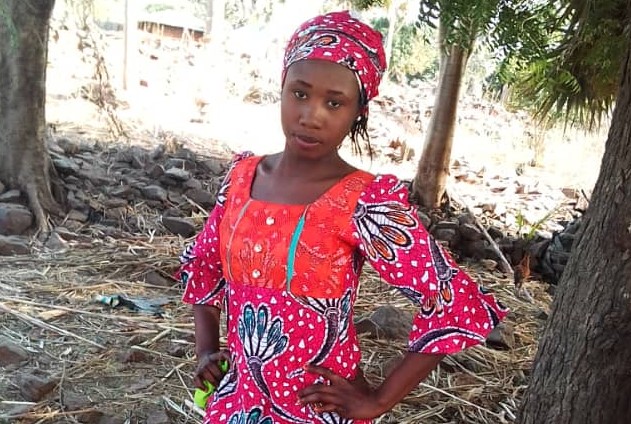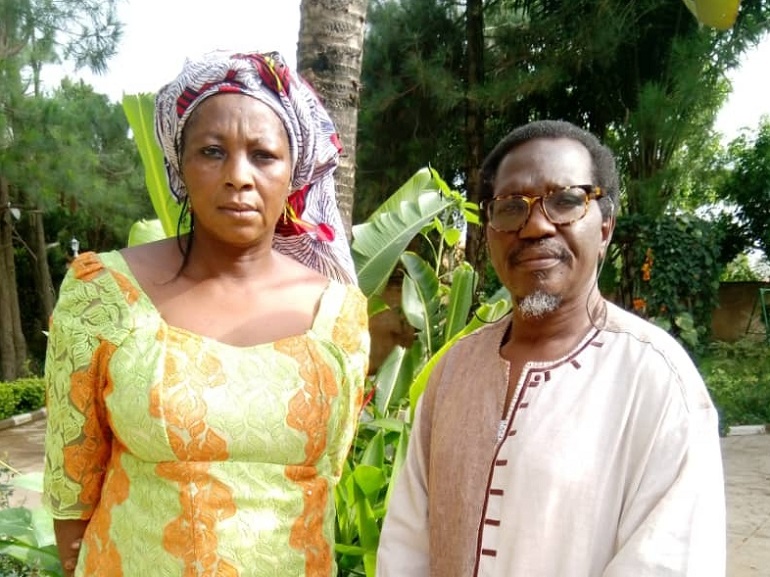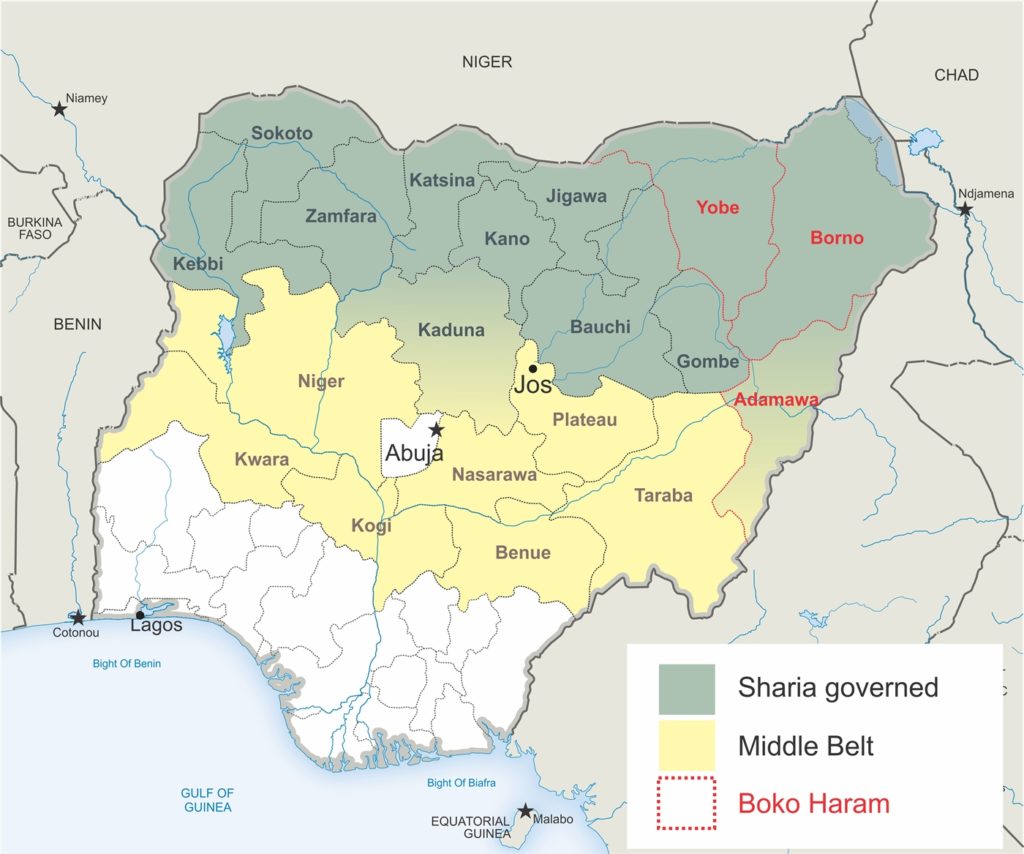Source: www.worldwatchmonitor.org
Date: May 14, 2021
 https://www.worldwatchmonitor.org/wp-content/uploads/2018/10/Leah-Sharibu-300x202.jpg 300w, https://www.worldwatchmonitor.org/wp-content/uploads/2018/10/Leah-Sharibu-82x55.jpg 82w, https://www.worldwatchmonitor.org/wp-content/uploads/2018/10/Leah-Sharibu-595x400.jpg 595w, https://www.worldwatchmonitor.org/wp-content/uploads/2018/10/Leah-Sharibu-75x50.jpg 75w" alt="Leah Sharibu was 14 when she was abducted, Feb 19, 2018" width="631" height="424" class="wp-image-35770 size-full lazyloaded" data-ll-status="loaded" />
https://www.worldwatchmonitor.org/wp-content/uploads/2018/10/Leah-Sharibu-300x202.jpg 300w, https://www.worldwatchmonitor.org/wp-content/uploads/2018/10/Leah-Sharibu-82x55.jpg 82w, https://www.worldwatchmonitor.org/wp-content/uploads/2018/10/Leah-Sharibu-595x400.jpg 595w, https://www.worldwatchmonitor.org/wp-content/uploads/2018/10/Leah-Sharibu-75x50.jpg 75w" alt="Leah Sharibu was 14 when she was abducted, Feb 19, 2018" width="631" height="424" class="wp-image-35770 size-full lazyloaded" data-ll-status="loaded" />Today (14 May), Leah Sharibu is 18 years old; it’s her fourth birthday as the captive of Islamic State West Africa Province (ISWAP).
Nigerian Leah is the girl who defied one of the most globally well-known terrorist groups, a splinter group of Boko Haram.
The then-14 year old was among 110 girls abducted after a raid on their school in Dapchi, in the north-eastern state of Yobe in February 2018. Sahara Reporters reported the army had just withdrawn from Dapchi, claiming it had handed over security to the Yobe police, but the police strongly denied that and the army could produce no proof.
ISWAP released 104 of the girls a month later; five others died on the day they were captured. Leah was the only one not to be freed because – despite her friends pleading with her as they got onto a truck to go home – she refused to renounce her Christian faith.
Two months after her abduction, Pres. Buhari pledged to secure her freedom during a visit to the USA. In London, he also told the Archbishop of Canterbury and the Secretary General of the Anglican Communion, Nigerian Archbishop Dr Josiah Idowu-Fearon, that his government was ‘working quietly’ to free her.
In August 2018, Leah – addressing him directly in a ‘hostage’ video clip – asked him to secure her release. But it was only on 29 September that year that Mr. Buhari first spoke directly with her parents, on the evening that a press conference had been held in Jos, the capital of Plateau State, where her mother pleaded with him to bring Leah home. He assured her that he would.
The conference was organised by Revd. Dr. Gideon Para-Mallam, seen here with Leah’s mother.
 https://www.worldwatchmonitor.org/wp-content/uploads/2018/10/GideonRebecca-300x225.jpg 300w, https://www.worldwatchmonitor.org/wp-content/uploads/2018/10/GideonRebecca-768x576.jpg 768w, https://www.worldwatchmonitor.org/wp-content/uploads/2018/10/GideonRebecca-73x55.jpg 73w, https://www.worldwatchmonitor.org/wp-content/uploads/2018/10/GideonRebecca-601x450.jpg 601w, https://www.worldwatchmonitor.org/wp-content/uploads/2018/10/GideonRebecca-534x400.jpg 534w" alt="Rebecca Sharibu and Rev. Dr. Gideon Para-Mallam" width="770" height="577" class="size-full wp-image-35769 lazyloaded" data-ll-status="loaded" />
https://www.worldwatchmonitor.org/wp-content/uploads/2018/10/GideonRebecca-300x225.jpg 300w, https://www.worldwatchmonitor.org/wp-content/uploads/2018/10/GideonRebecca-768x576.jpg 768w, https://www.worldwatchmonitor.org/wp-content/uploads/2018/10/GideonRebecca-73x55.jpg 73w, https://www.worldwatchmonitor.org/wp-content/uploads/2018/10/GideonRebecca-601x450.jpg 601w, https://www.worldwatchmonitor.org/wp-content/uploads/2018/10/GideonRebecca-534x400.jpg 534w" alt="Rebecca Sharibu and Rev. Dr. Gideon Para-Mallam" width="770" height="577" class="size-full wp-image-35769 lazyloaded" data-ll-status="loaded" />Two weeks later, ISWAP announced that Leah would now be ‘a slave for life. “Based on our doctrines, it is now lawful for us to do whatever we want to do with [her],” The Cable reported the group as saying.
In January, 2020, a journalist well-known for reporting news from Boko Haram reported Leah had had a baby.
In March this year, rumours surfaced that Leah has given birth to her second child. Her parents declined to comment and told journalists: “There’s nothing you will hear from us. You can go and write anything you like.
We have resigned to fate, since the Federal Government has refused to help us secure the release of our daughter. We rest our hope in the Lord, no longer in the Nigerian government.’”
“The children born into Boko Haram from women in captivity are themselves victims and their growing number only adds to the urgency to rescue the thousands of girls, women and children imprisoned by Boko Haram,” stated a spokesperson for Open Doors International, which campaigns for persecuted Christians.
Leah’s mother Rebecca said this week (in an interview) “By the grace of God. I have not lost hope because God is in control and people are praying. I have the hope that one day, I will see my daughter again.”
Chibok girls, UNICEF nurse and church leader
Leah is not alone; there is also UNICEF nurse Alice Loksha Ghaddah, abducted in October 2018, the remaining Chibok girls and a leader of the Church Of Christ In Nations (COCIN) network – Rev. Polycarp Zongo. He was widely reported to have been freed a few weeks after his kidnap last October; the reports were wrong – he remains in captivity.
Nigeria has one of the world’s highest rates of kidnap-for-ransom cases, explains Quartz Africa. In their effort to establish a caliphate in the Lake Chad Basin and beyond, Boko Haram has snatched thousands of girls, women, boys and men from their homes across north-eastern Nigeria, northern Cameroon and southern areas of Niger and Chad.
 https://www.worldwatchmonitor.org/wp-content/uploads/2018/04/crop-56x55.jpg 56w" alt="Leah Sharibu, 14, was abducted on 19 February 2018. (Photo from family)" width="252" height="247" class="size-full wp-image-30649 lazyloaded" data-ll-status="loaded" />
https://www.worldwatchmonitor.org/wp-content/uploads/2018/04/crop-56x55.jpg 56w" alt="Leah Sharibu, 14, was abducted on 19 February 2018. (Photo from family)" width="252" height="247" class="size-full wp-image-30649 lazyloaded" data-ll-status="loaded" />There is growing pressure on government over the increase in kidnapping in other areas of Northern Nigeria by so-called bandits. While the motivation is clearly financial, observers warn that at least some may have links to Islamist terrorist groups.
This week, a coalition of over 120 Nigerian NGOs, including Action Aid, issued a plea that President Buhari act over the decline in security. Following what it referred to as “a sharp increase of 43 per cent in mass atrocities 2020” it had “recorded an all-time quarterly high of almost 2000 fatalities from mass atrocities incidents across the country” from January to March 2021.
The organisations noted the government’s inaction over “terrorist herder attacks on unarmed farming communities, and reprisal attacks in the face of government inaction and failure to bring the terrorist herdsmen and their funders to justice” and how the government had downplayed the severity of “large scale terrorist attacks in the North West” by tagging the criminality as “banditry”.
The NGOs had in a February statement charged President Buhari to halt the drifting of Nigeria to what they called a ‘state of anarchy’ by providing the desperately needed “political and moral leadership” they said is lacking in the country.
On 13 May, marking the Eid-ul-Fitr festival ending Ramadan, President Buhari pledged that his administration will “use all available resources and manpower in dealing with bandits”, saying “We want people to go back to the land so that we can get enough food for the country and even export.”
During Eid prayers, Bauchi State Governor urged the Federal Government to work towards improving the security architecture, adding that tackling insecurity is a collective effort. “As a nation, we need to reflect deeply on our common existence because we are challenged by so many aspects of our misdemeanours. Most of the criminality is coming from us as members of the Islamic faith, such as banditry, kidnapping and the rest. We must be very courageous to say it. It’s not something acceptable in the tenets of Islam.
”’We know these bandits. We know where they stay and what they do. Sometimes we aid and abet them. We should fish them out because the police in their limited numbers are already overwhelmed due to insufficient human capital….Apparently, the Federal security architecture has failed not because of any compromise but because the situation is overwhelming”.
States that have suffered such ‘bandit’ attacks in the past few weeks alone include Kaduna (the most), with Katsina (the President’s home state, having the next highest number), Zamfara and Niger. These states are thousands of miles from the troubled north east, where Boko Haram remain in the Sambisa forest.
 https://www.worldwatchmonitor.org/wp-content/uploads/2017/08/Nigeria_2017_0270101358-300x250.jpg 300w, https://www.worldwatchmonitor.org/wp-content/uploads/2017/08/Nigeria_2017_0270101358-768x640.jpg 768w, https://www.worldwatchmonitor.org/wp-content/uploads/2017/08/Nigeria_2017_0270101358-66x55.jpg 66w, https://www.worldwatchmonitor.org/wp-content/uploads/2017/08/Nigeria_2017_0270101358-540x450.jpg 540w, https://www.worldwatchmonitor.org/wp-content/uploads/2017/08/Nigeria_2017_0270101358-480x400.jpg 480w, https://www.worldwatchmonitor.org/wp-content/uploads/2017/08/Nigeria_2017_0270101358.jpg 1400w" alt="Nigeria's 'Middle Belt' is made up of a handful of states straddling the pre-colonial line dividing Nigeria’s predominantly Muslim north from its Christian south." width="770" height="642" class="size-large wp-image-21802 lazyloaded" data-ll-status="loaded" />
https://www.worldwatchmonitor.org/wp-content/uploads/2017/08/Nigeria_2017_0270101358-300x250.jpg 300w, https://www.worldwatchmonitor.org/wp-content/uploads/2017/08/Nigeria_2017_0270101358-768x640.jpg 768w, https://www.worldwatchmonitor.org/wp-content/uploads/2017/08/Nigeria_2017_0270101358-66x55.jpg 66w, https://www.worldwatchmonitor.org/wp-content/uploads/2017/08/Nigeria_2017_0270101358-540x450.jpg 540w, https://www.worldwatchmonitor.org/wp-content/uploads/2017/08/Nigeria_2017_0270101358-480x400.jpg 480w, https://www.worldwatchmonitor.org/wp-content/uploads/2017/08/Nigeria_2017_0270101358.jpg 1400w" alt="Nigeria's 'Middle Belt' is made up of a handful of states straddling the pre-colonial line dividing Nigeria’s predominantly Muslim north from its Christian south." width="770" height="642" class="size-large wp-image-21802 lazyloaded" data-ll-status="loaded" />Boko Haram ‘flies its flag two hours drive from capital Abuja’
The Governor of Niger state was filmed on 28 April saying that ‘bandits and Boko Haram elements’ have taken over villages, even flying their flag there, ‘less than two hours drive from Abuja’. About 5000 people fled after the attack. Niger is one of twelve states ruled by Sharia law, but about 25% of its population are Christians (World Christian Database, accessed April 2021).
A few days after this incursion, Nigeria’s Foundation for Investigative Journalism (FIJ) reported it ‘has gathered that communities in Gurmana, Manta, Bassa and Kukoki distrists in Shiroro area of the state have negotiated with the terrorists for a peace deal after reaching an agreement to pay certain amounts of money in each community’.
It reported that Yusuf Sani, the co-convener of Concerned Shiroro Youth, confirming the incidents to FIJ, said “This is what most of the communities are resorting to. By my records now, communities that have signed the peace deal with the terrorists are more than 40.
“While some communities have already sealed up deals for ceasefire with the terrorists and are currently reaping the benefits, others are on the verge of finalising theirs.
“The affected victims have been forced to find solutions for themselves within since the much-anticipated intervention from government is not forthcoming.”
Sani also said the communities have paid not less than Naira 20 million (over US $50,000) to sign the peace deal with the terrorists. He added that, although the negotiation was oral, more communities are planning to enrol for the peace deal.
Mary Joel Merje, the Chief Press Secretary to the Niger State government, did not answer multiple calls from the FIJ, it said.
The managing director of World Watch Research for Open Doors International, Frans Veerman, comments “The main cause of concern is that a deal has been struck with a violent mafia-like network with a jihadist agenda. Once a village starts to enter into such deals, where will it stop, and if protection has to come from your persecutors, can the latter really be trusted? The villagers are making themselves vulnerable to the possibility of Boko Haram making ever increasing demands’.
Meantime, Rev. Dr. Gideon Para-Mallam has launched a pilot Peace Project in Kaduna, supported by the UK Foreign and Commonwealth Development Office, saying “the overarching thing is inter-religious harmony and the three critical stakeholders (Traditional, religious and community leaders) are involved”.
In May 2020, research showed that over $18m of ransom had been paid out to kidnappers over the previous 10 years. Kaduna – the state with the second-highest* number of kidnap incidents over that time – also has a significant history of violence, especially along its connecting road to Abuja, it showed.
Head of Research Ikemesit Effiong at SBM Intelligence told the BBC then the kidnap pattern has changed over the decade. ‘Where once it was of the political/economic elite, now it’s of ‘farmers, low-income blue collar workers, schoolteachers, students…indeed every Nigerian is now at risk’.
*Over much of the decade, most kidnaps for ransom occurred in southern states around the Niger Delta
